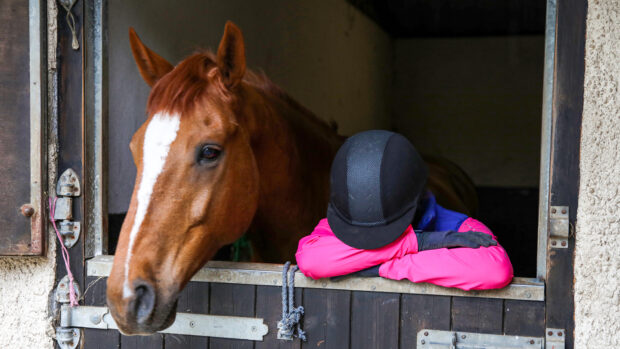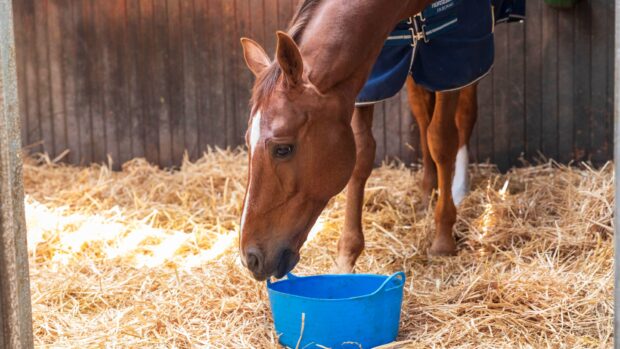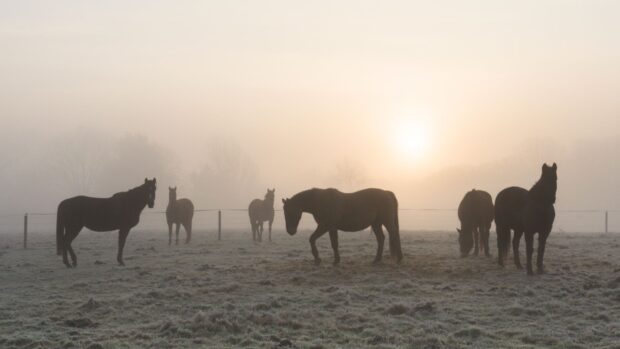Purchasing a horse at whatever budget you have is only the beginning; the ongoing cost of owning a horse is the most important figure in terms of what you can afford to maintain. But there are several ways of experiencing the joys of having what feels like your own horse to ride, without the financial commitment of full ownership. Horse & Hound compares approximate costs of owning a horse outright, sharing and having lessons on a riding school horse.
Cost of owning a horse
Unless you have the luxury of being able to keep your horse at your own home, your heaviest monthly cost of owning a horse will be the livery bill. The bare minimum annual expenditure for a horse kept on livery will be around £85 a month (grass livery for a hardy pony) going up to £1,ooo–£1,600 a month for a horse stabled on full competition livery. Prices will depend on location, the facilities at the stables and the level of care offered.
DIY livery is at face value a much cheaper way of keeping your horse than part or full, but remember to factor in the costs of feed, bedding, forage, and the responsibility of needing to be at the yard twice a day, or pay for cover whenever you away. Expect to pay in the region of £120-300 per month.
Whatever livery package you choose, additional costs will push it significantly above the flat monthly fee.
Typical routine “extras” include:
- Shoeing: every four to six weeks at around £80-95 per new set
- Dentistry: regular check-ups, either six-monthly or at least annually, at a cost of around £80 for a full examination plus rasping
- Vaccinations: equine flu jabs need to be done at least annually, but some competition authorities require every six months. These are around £35 (£45 with tetanus) and you usually have to pay a call-out fee, too
- Insurance: this depends completely on the value of your horse, what you do with him, and the depth of cover you go for. Costs can vary from around £50 per month into the thousands.
This is by no means a comprehensive list – the saddle fitter and physio are additional costs, and there will inevitably be vets’ bills at some point. There are other one-off costs, such as tack and rugs, plus regular less expensive items that soon add up, for example: supplements, worming and grooming products. And this is before you even start on transport or training.
Sharing a horse
If you own a horse and want some breathing space on the monthly bills, finding someone to share your horse who will shoulder some of the financial burden is worth consideration. It’s essential to have a contract and appropriate insurance, even between friends, so that you both know where you stand in case anything untoward occurs.
Sharing contracts vary enormously. Typically, the owner will allocate a number of days for the sharer to ride the horse in exchange for a financial contribution and sometimes yard duties. The contribution tends to vary according to the riding ability of the sharer (for instance, they may be adding value to the horse through their schooling), whether they wish to compete and so on. If an owner is short of time and is seeking a sharer so they don’t have to pay someone to ride their horse, they may allow the sharer to pay nothing. On the other hand, they may want as much as half the cost of the livery, or for the sharer to pay for the farrier for example.
From the owner’s point of view, this reduces the monthly costs, while they retain their overall responsibility for the horse (and the asset should they wish to sell). For the sharer, they have no long-term financial commitment, and may find a nice horse to ride – and sometimes compete – without a major investment. If they decide they no longer enjoy riding the horse, either they or the horse suffers an injury or their funds dry up, they can move on without any responsibility. Conversely, if the owner decides to sell, they are likely to lose the ride.
Taking lessons at a riding school
Riding lessons might seem expensive as a one-off cost, but if you can only ride once a week and don’t have your own horse, this is often the most viable option. And there’s the benefit that you are learning and therefore making progress in your riding. You can often build up a rapport with a certain horse or pony, giving you some of the experience of having your own horse.
As with the two previous options, the range in costs are as long as a piece of string. Prices are much higher in the south of the country, and again within London’s commuter belt. For example, an hour’s private lesson in the centre of London could set you back as much as £145, while in Leicester it might be only £36. It also depends on the level of instructor – a highly qualified senior instructor will charge up to 50% more than one with lower qualifications.
Then there are variations in cost according to the type of lesson you want. A group lesson will be cheaper than a private one, and although you won’t have the intensity of one-to-one tuition, there’s plenty to be gained from watching other riders, listening to the instructor’s comments and making friends. Booking a block of lessons is likely to earn you a discount. Bear in mind, you will usually have to pay around £2–5 to hire a hat if you don’t bring your own.
For younger riders, many riding schools offer “pony days”, which allow for time both riding and learning to look after horses. Week-long camps also work out a better value for money in terms of hours spent in the saddle and gaining valuable education.
Some riding schools will offer hacks in the countryside or on the beach – these are often cheaper per hour than a lesson in an arena, although you won’t be benefitting from the same level of tuition.
It’s worth checking out if the riding school offers cheaper lessons during the week; weekends are often more expensive due to demand.
Most expensive of all lessons is hiring a schoolmaster to teach you the more advanced movements and jumping. Few centres offer this (subject to riding ability), and you’ll need to budget around £130 depending on the level of the instructor.
Like many hobbies, horses are expensive, but there is a vast range of options to suit more budgets than you might think.
NB: All prices given here are approximate and are based on prices correct in March 2022.
You might also like:
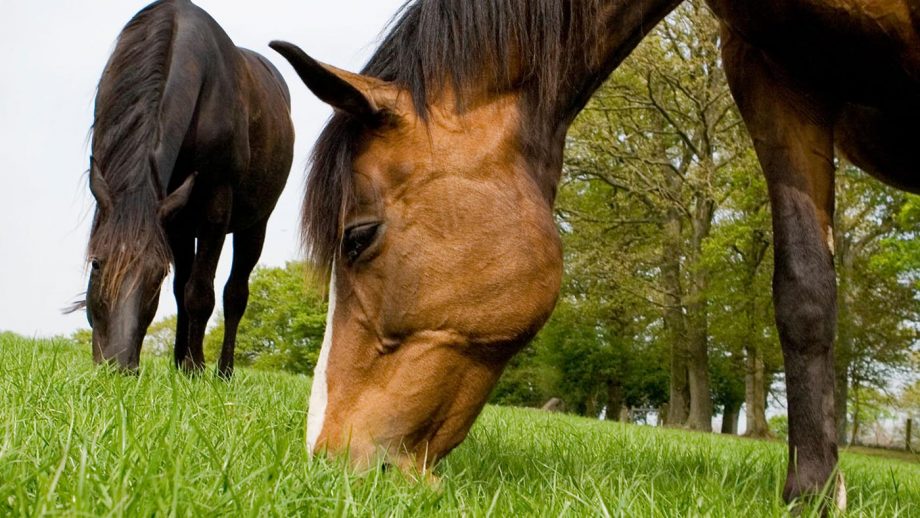
How much does a horse really cost a month? H&H does the maths…

Sharing horses: dos and donts
Advice to help make sharing your horse a success

Cost of living squeeze: what it means for horse owners and equestrian businesses
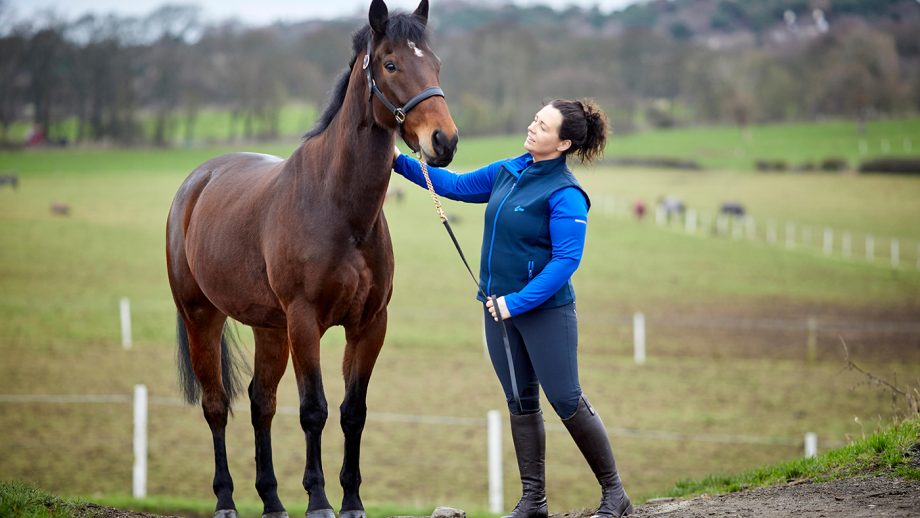
Buying a horse: Horse & Hound’s ultimate step-by-step guide

The 7 stages of a horse lover’s life (from jumping broom handles to sensible cobs)

Subscribe to Horse & Hound magazine today – and enjoy unlimited website access all year round


